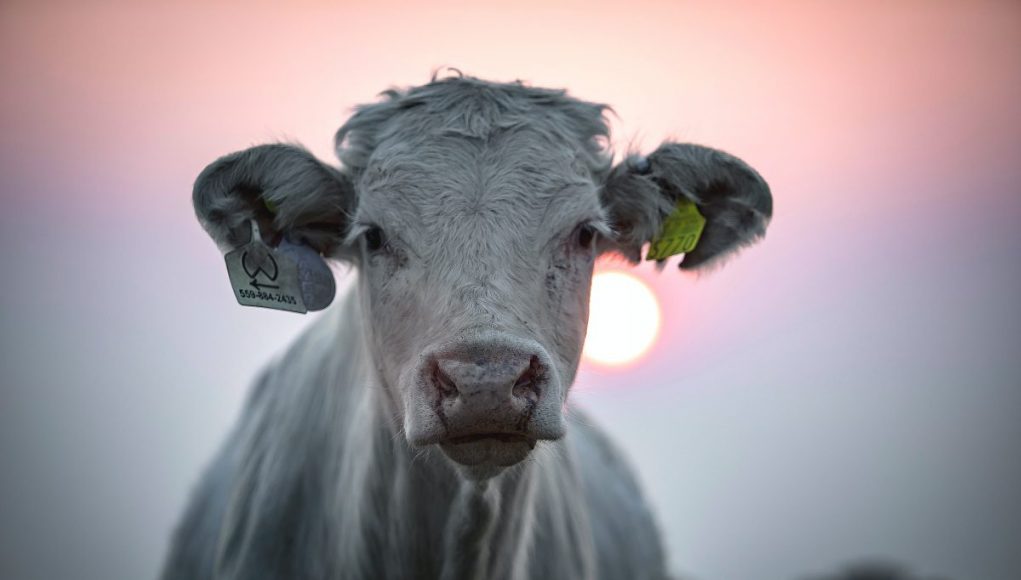INSIGHT by FAIRR Initiative
$20 trillion network highlights investment risk if greenhouse gas taxes extended to animal agriculture; and factors tax into first-of-its-kind financial modelling
| A new report into the concept of ‘meat taxes’ has found that there is gathering momentum to include farm animal emissions in carbon pricing and other tax regimes, as policy-makers seek to reduce the sector’s harmful impacts on the environment and human health.
The research is produced by the FAIRR Initiative, a global network of investors managing over $20 trillion of assets, who have also built this finding into a tool to help investors price the cost of carbon taxes on agricultural emissions into their valuations of major meat companies. The tool calculates that carbon taxes could cost a set of 40 leading meat companies* up to $11.6bn of EBITDA by 2050, equating to an average impact of 5% of each company’s revenue.
The report entitled ‘The Livestock Levy: Progress Report’ builds on a 2017 White Paper on the issue. Highlights of the report include:
〉Policy discussions: The report assesses recent policy discussions on the issue of extra taxes on meat, including a study commissioned by the Dutch Government into ‘fair meat prices’ and the Climate Change Response (Emissions Trading Reform) Amendment Bill in New Zealand which means livestock emissions at the farm level will be taxed within the country’s Emissions Trading Schemes from 2025.
〉Ascendency of climate: In the wake of the COVID-19 pandemic (a zoonotic disease that has transferred from animals to humans) the human health issues connected with meat are currently in the spotlight. The report finds that, in addition to these growing health concerns, the environmental impact of meat has become particularly pressing for policymakers, and is likely to create material risks for investors to consider.
〉Transition crops: The report says that progressive legislation will likely tie incoming revenues from meat taxes to specific societal benefits such as lower prices of fruit and vegetables or support to farmers to help transition to more climate-friendly produce.
Alongside its report, FAIRR also today re-released its Coller FAIRR Climate Risk Tool, which enables investors to practically apply these findings in their portfolio management.
The Tool uses projections from the IEA World Energy Outlook to conclude that the meat sector could face carbon tax costs of up to $53 ton/co2-e in North America and Europe ($27 ton/co2-e in all other geographies) by 2050. The Tool enables investors to price this, and other potential climate risk costs, into their long-term valuations of food companies.
The updated Coller FAIRR Climate Risk Tool provides analysis on the climate risks facing 40 leading animal protein companies and their ability to mitigate those risks; for instance, by diversifying into alternative proteins. It also enables investors to input their own company data to assess and compare the impact of climate risk on holdings within their portfolios.
Jeremy Coller, Founder of FAIRR and Chief Investment Officer of Coller Capital said,
“There’s increasing consensus that we cannot achieve the Paris Climate Agreement unless we deal with factory farming – a sector emitting more greenhouse gases than all the world’s planes, trains and cars put together. That’s driving gathering momentum in policy circles to apply carbon taxes to the meat industry. The New Zealand government has legislated to measure and price emissions from farms from 2025, and there is a clear risk for the sector that other regulators will follow suit. Investors are starting to price this market event into their long-term valuations of meat companies, using FAIRR’s Climate Risk Tool.
“A root cause analysis of the COVID-19 pandemic is likely to show the urgent need for the meat and fish industry to improve biosecurity and screening practices. Who pays? In the post-COVID landscape, there is a risk that governments may stop subsidising animal agriculture, and start taxing it instead.”
| further information and engagement opportunities:
| All opinions expressed are those of the author. investESG.eu is an independent and neutral platform dedicated to generating debate around ESG investing topics.








